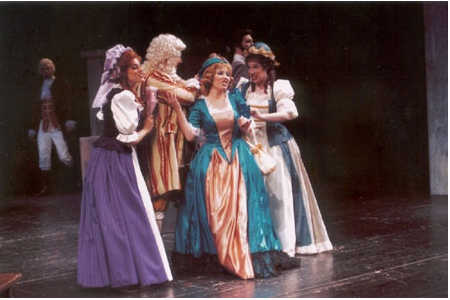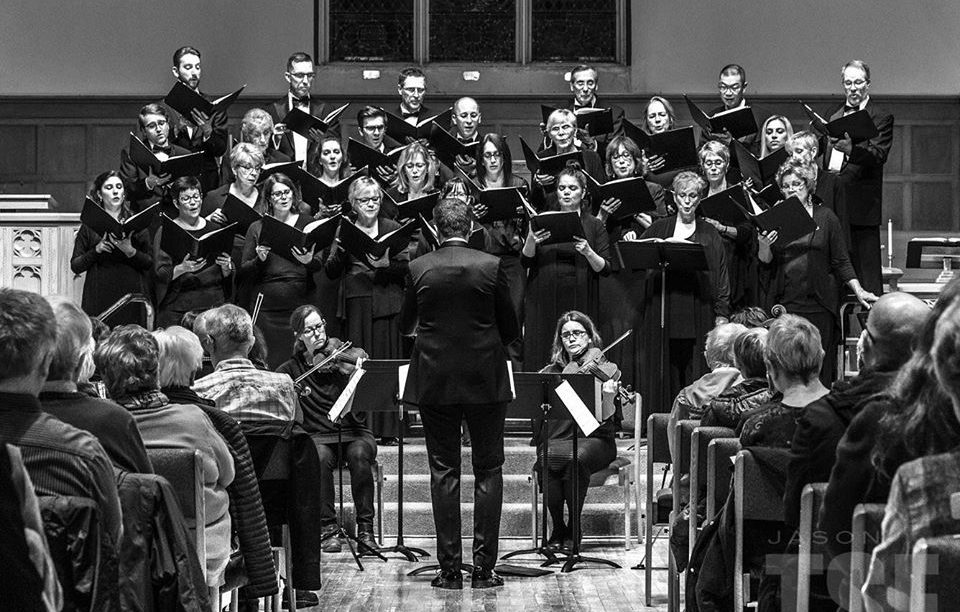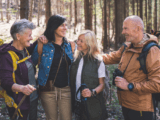Before I became a writer, I was a singer. I have two degrees in voice performance and I sang professionally for more than a decade, as a soloist in choirs, on the opera stage, and in recital. Even now, I continue to sing because music is part of who I am.
That’s why the current scientific consensus during this pandemic, that it’s unsafe to sing in groups, is so gutting for me. And I know many other singers, both professional and amateur, who feel the same.
You may unsubscribe from any of our newsletters at any time.
This is about more than the Toronto Mendelssohn Choir‘s future performances, or reuniting Choir! Choir! Choir! – this is about mental health for a large segment of the Canadian population. Places of worship, community choirs for both adults and children, music therapy for seniors: all of these are affected.
As my professional singing career wound down, about 10 years ago, I connected with a university friend who conducted a community choir and was looking to hire section leads. What started as a regular source of income soon became a really important part of my life. I was back singing with the choir just a few months after having both my kids, and when we moved 25 kilometres east of Toronto, doubling my commute to rehearsal, I couldn’t bring myself to quit. Most weeks, I drive close to an hour each way to sing with my choir, and it’s absolutely worth it.
More on Broadview: What is church without song?
As the pandemic began to close in on the country in March, we were preparing for several upcoming concerts. Rehearsals were cancelled, first for a few weeks, then another few weeks, and finally when it was clear the virus wasn’t going anywhere, our conductor called off the season. He sent weekly video messages to the choir that started out hopeful, but as time wore on, I think we could all feel his growing sorrow as it echoed our own.
I’ve come to rehearsal hurting, or feeling low or anxious, and the music and people help me heal. The week after my father-in-law passed away, we rehearsed “You’ll Never Walk Alone,” from the musical Carousel. I sang, at first with a lump in my throat and then, by the end, crying openly. It was cathartic. There’s something about being carried along by other voices, even as your voice fails, that is uniquely curative.
Singing in a choir is about connection, both to the music and to those around you. The choir appears as a single unit in performance, but it’s made up of dozens, or even hundreds, of individuals who need to work together to make a song coalesce. You need to listen to your fellow choristers as you sing, to stay in tune and tempo. You can show up to choir practice and sing as loud and as out of tune as you want, but you’ll ruin it for everyone else.

Relationships are also a big part of what makes a choir special. When you gather every single week to practice, you develop a camaraderie with those who sit near you. The choir has its own dynamic with the conductor and pianist, and together you share laughs and celebrate important moments. It can be a lifeline for many who attend.
There are countless studies on the biopsychosocial benefits of group singing on vulnerable populations. A 2018 article in The Oxford Handbook of Community Music stated, “Choral singing, a social activity, can contribute to health and social and emotional well-being through enhancing individual and social variables, such as a sense of motivation, personal worth, concentration, and social engagement.”
Singing with a community can reduce feelings of loneliness in the elderly, promote a sense of belonging in marginalized groups and improve mental health outcomes in new mothers, among so many other positive effects. We know the COVID-19 pandemic is creating its own mental health crisis; the fact that one of the easiest ways to improve our well-being is forbidden right now is worth mourning.
I know this time apart will end, at some point. I know I will be okay, and can use singing on my own to help me through these rough times. I worry, though, about my fellow choristers for whom choir is a vital part of their lives. To them, I will sing “You’ll Never Walk Alone.”
Glynis Ratcliffe is Broadview’s senior writer.
I hope you found this Broadview article engaging. The magazine and its forerunners have been publishing continuously since 1829. We face a crisis today like no other in our 191-year history and we need your help. Would you consider a one-time gift to see us through this emergency?
We’re working hard to keep producing the print and digital versions of Broadview. We’ve adjusted our editorial plans to focus on coverage of the social, ethical and spiritual elements of the pandemic. But we can only deliver Broadview’s award-winning journalism if we can pay our bills. A single tax-receiptable gift right now is literally a lifeline.
Things will get better — we’ve overcome adversity before. But until then, we really need your help. No matter how large or small, I’m extremely grateful for your support.
Jocelyn Bell
Editor/Publisher














Thanks Glynis. The pain is equal for those of us who are enthusiastic congregational singers. And so we “♫Walk on, walk on with hope in our hearts…:
This too shall pass.
As St. Augustine said, “When you sing, you pray twice.”
We have a senior choir in Williams Lake, B.C. that meets once a week in an outside parking area. There are 10 of us all. 70 plus . Our seats are 2 m apart and are staggered. We are conscious of the way the wind is blowing, and our conductor positions herself accordingly.
I, too have a passion for singing as I have done so for 50 years. Music unites us and warms our hearts in so many ways.
We may have lost the chance to sing together for a season during this Pandemic, but we will never lose the music of living our Creator has placed in our hearts.
We just need to get creative:
Check out how hearing impaired folk sing.
They speak deaf sign with their hands and expressive faces. A simple song like “This Little Light of Mine” done in sign with music accompaniment can profoundly touch our hearts. A congregation could sing this way way to join the divine dance!
What about music with creative dance in each verse?
Or drums, clapping, rhythms which are all a part of many cultures. These can connect us without singing until we can sing again.
Let’s be creative, United Church! We’ll get through this together.
Heather Walton
Many years ago I heard a woman, trained to help seniors in care facilities, say some of the same things that Ms, Ratcliffe has written. I’m in a care facility now, and one of things that is missing is the singing that individuals and groups provided on a weekly basis before Covid-19. Sure, some of us can no longer sing, but watch our feet or hands as we hear the music. Ms. X seems ‘out of it’ until the music or singing begins, then her foot keeps time. So does Mr. Y as he moves his hand to the rhythm.